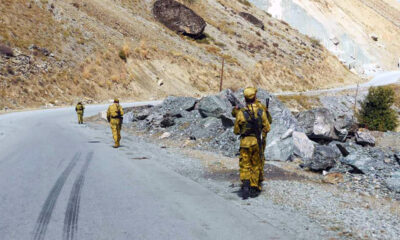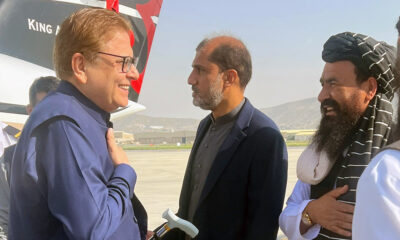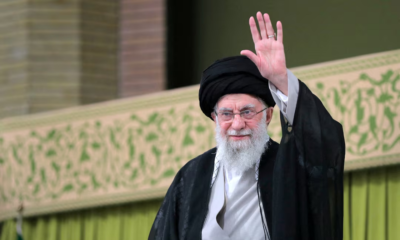Latest News
MoFA welcomes Troika statement after Moscow summit
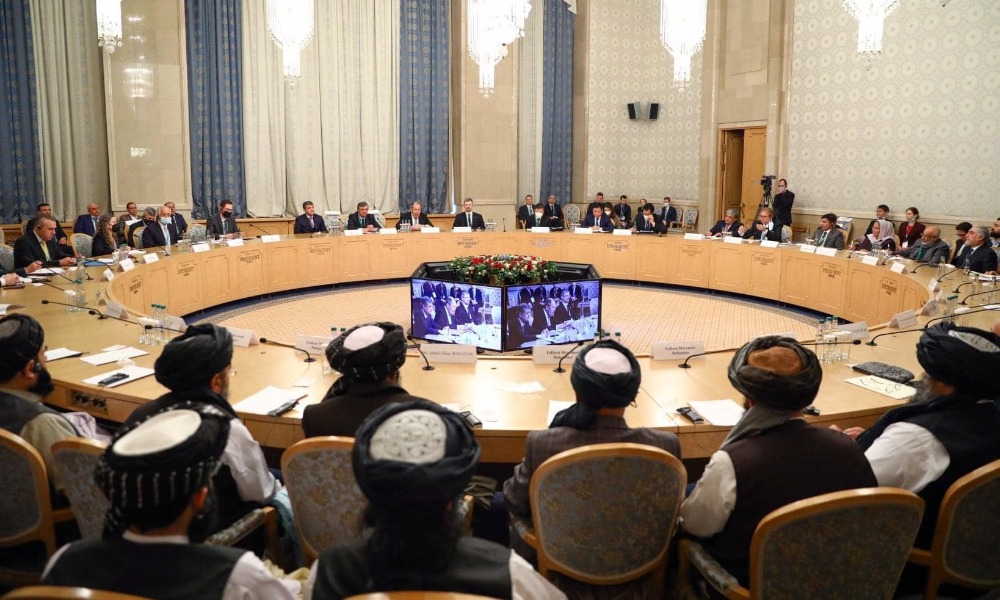
The Afghan Foreign Ministry has welcomed the joint statement of Russia, China, the US, and Pakistan, also known as the Troika, issued following a day of discussions in Moscow.
The Ministry called the statement a step forward towards beginning serious negotiations for achieving peace based on the demands of the people of Afghanistan.
“Welcome joint statement of Troika+ talks in Moscow and share the call for ending hostilities and moving towards a peaceful settlement that preserves our sovereignty, unity, democracy, and equal rights of all Afghans, “ Foreign Minister Mohammad Haneef Atmar said.
The Ministry also welcomed the statement’s emphasis on the UN Security Council Resolution 2513 and “consider its implementation important for holding the Taliban responsible and accountable for fulfilling their obligations, including ending violence and targeted killings and severing ties with terrorist organizations. As noted by the statement, Afghanistan’s territory must not be used by individuals or terrorist groups to threaten the security of other countries.”
The Afghan Government has always emphasized a peaceful settlement that can lead to a just and lasting peace, and on a free, independent, united, peaceful, democratic, and self-sufficient Afghanistan that is at peace with itself and its neighbors. We are delighted that this aspiration of the Afghan Government and people has also been reflected in the Moscow statement.
“We also support the statement’s emphasis on a political solution that protects our citizen rights and affirm that the preservation of political, economic, and cultural achievements, including the human rights of citizens and democratic institutions, is the most important prerequisite for achieving a just and lasting peace in the country,” the statement read.
“The Afghan Government welcomes the statement’s candidness stating that: “we do not support the restoration of the Islamic Emirate …” and stresses upon the principle that the “Islamic Republic” is the only inclusive and acceptable structure for ensuring political participation, pluralism, citizen equality and preserving law and order in a diverse and pluralistic society like Afghanistan.”
“While supporting the Moscow meeting’s final statement, we reaffirm that the Government of the IRoA is committed to engaging in substantive and serious negotiations on key issues, including establishing a ceasefire and achieving a comprehensive political settlement that ends the war and brings about sustainable peace in the country.”
“We support and commend the efforts of all countries in the region and the world to ensure peace in Afghanistan and acknowledge the significance of the United Nations’ role in strengthening the peace process. We also wish to thank Qatar, Russia, and Turkey for hosting the talks,” the statement concluded.
Russia hosted a landmark peace summit in Moscow on Thursday which brought together representatives of the Afghan Republic and the Taliban, along with other key stakeholders, aimed at accelerating the peace process in Afghanistan.
The Troika in a joint statement on Thursday stated that they do not support the restoration of an Islamic Emirate.
“We call on all parties to the conflict in Afghanistan to reduce the level of violence in the country and on the Taliban not to pursue a Spring offensive, so as to avoid further casualties and to create an environment conducive to reaching a negotiated political settlement,” the statement said.
Citing the UN Security Council resolution 2513 (2020), the Troika said they do not support the restoration of the Islamic Emirate and called on the Afghan government and the High Council for National Reconciliation to engage openly with their Taliban counterparts regarding a negotiated settlement.
“We urge participants in the intra-Afghan negotiations to engage immediately in discussions on fundamental issues to resolve the conflict, including the foundations of the future peaceful and stable Afghan state, the content of a political roadmap leading to an inclusive government, and the modalities of a permanent and comprehensive ceasefire.”
“At this pivotal moment, our four states call on the parties to negotiate and conclude a peace agreement that will bring an end to over four decades of war in Afghanistan,” the statement read.
They also said they strongly advocate a durable and just political resolution with will result in an independent, sovereign, unified and peaceful Afghanistan “free of terrorism and an illicit drug industry”.
They also called on both the Afghan government and the Taliban to ensure no terrorist groups nor individuals use Afghan soil to threaten the security of any other country.
The Troika also stated: “We reaffirm that any peace agreement must include protections for the rights of all Afghans, including women, men, children, victims of war and minorities.”
All concerned countries were also encouraged to support the Afghan people and to contribute to a lasting peace.
“We reaffirm our commitment to mobilize international political and economic support for a post-political settlement in Afghanistan,” the statement read.
The Troika also acknowledged Qatar for its support of the peace process and said they were in support of the continuation of discussions between the negotiating teams in Doha.
In conclusion, they stated they welcome all international efforts that are underway to facilitate and support a negotiated settlement as soon as possible.
“We note that the UN Secretary-General Gutteres’ appointment of Mr. Jean Arnault as his personal envoy on Afghanistan and regional issues. We welcome the UN playing a positive and constructive role in the Afghan peace and reconciliation process.”
Thursday’s event was attended by representatives of the Afghan government, the Taliban, prominent Afghan political figures, and Qatar and Turkey representatives, who were guests of honor.
The US Special Representative for National Reconciliation Zalmay Khalilzad also attended the meeting, which is the first of two such summits planned.
The next landmark meeting will be held in Turkey next month – which is in line with Washington’s push for a political settlement as soon as possible.
Latest News
CSTO member countries concerned over terrorism threat to Central Asia from Afghanistan
Armenia, Belarus, Kazakhstan, Kyrgyzstan, Russia, and Tajikistan make up the CSTO, with Tajikistan playing a key role in ensuring security in the area.
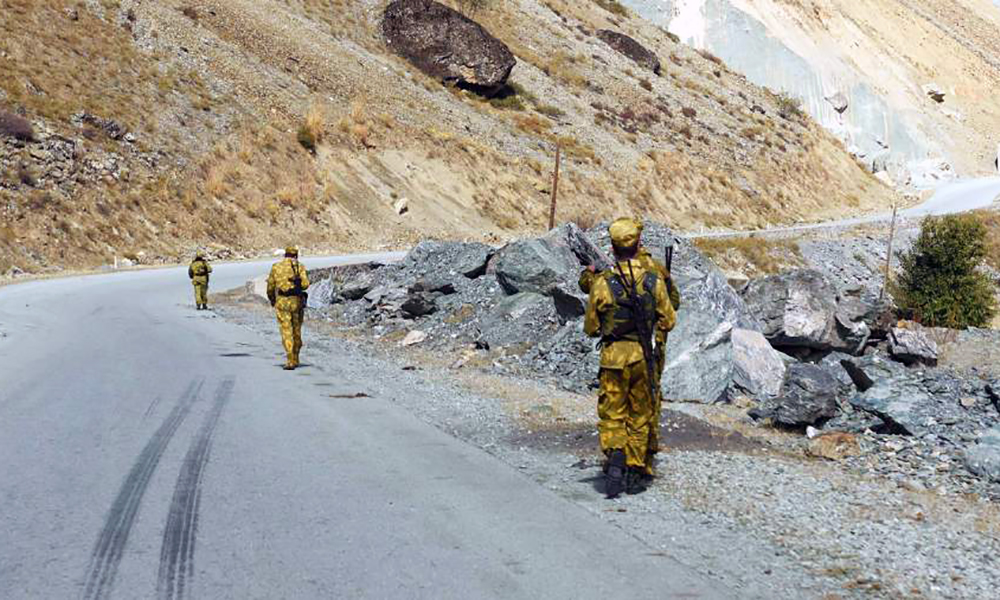
The Collective Security Treaty Organization (CSTO) has expressed concern about what they claim is growing threats in provinces in northern Afghanistan that border Central Asian countries.
Natalia Kharitonova, press secretary of the CSTO secretariat, told Russia’s Izvestia news outlet that the territory of Afghanistan remains a source of challenges related to terrorism, extremism, and drug crimes.
According to her, Tajikistan is ready to begin the first stage of the CSTO program to strengthen the Tajik-Afghan border.
However, she stated that the removal of the Islamic Emirate from Russia’s list of terrorist organizations may encourage Kabul to work more closely with neighboring countries to combat terrorism.
Armenia, Belarus, Kazakhstan, Kyrgyzstan, Russia, and Tajikistan make up the CSTO, with Tajikistan playing a key role in ensuring security in the area.
The CSTO program to strengthen the Tajik-Afghan border was first adopted by the CSTO in 2024. There are three phases.
The first phase involves Tajikistan, as the coordinator of the program, assessing the capabilities of the Member Countries in the production of weapons and technical means for border protection.
Once this is completed, CSTO members will select funding sources and finalize contracts. Deliveries are already planned for 2026-2027, the CSTO confirmed.
The third phase, which runs from 2027 to 2029, involves the practical provision of security along the entire section of the Tajik-Afghan border, which stretches for 1,300 km. Actual details on this phase have not yet been revealed.
However, Omar Nessar, a researcher at the Institute of Oriental Studies of the Russian Academy of Sciences, told Izvestia that the task of actually securing the border will probably be Russia’s responsibility as it has a large military base in Tajikistan.
On April 11, the Secretary General of the organization, Imangali Tasmagambetov, met in Dushanbe with the President of Tajikistan, Emomali Rahmon, and other officials, including the Minister of Defense of Tajikistan and the Secretary of the Security Council.
This, and other recent visits, demonstrate the Tajik side’s willingness to implement the first and all subsequent phases of the program, Kharitonova told Izvestia.
She went on to say that the organization has detected groups of militants operating from inside Afghanistan, along the Tajik border.
According to her, these are international militant groups such as Jundallah, the East Turkestan Islamic Movement and ISIS (Daesh).
Izvestia reported that the situation has become a lot more complicated since the change in power in Syria as several hundred militants from Central Asia were released from Syrian prisons. Hundreds made their way to the Afghan border area with Tajikistan, she said.
However, Omar Nessar believes that the situation on the border is stable at the moment, but that it could change.
Nessar suggested that a move towards recognizing the Islamic Emirate could be seen as an incentive for the ruling government to work more closely with neighboring countries to combat terrorism.
The Islamic Emirate has however repeatedly stated that no foreign militant groups, or Daesh, operate out of Afghanistan. The IEA has said it will not allow any individual or group to threaten another country from Afghanistan soil.
International Sports
IPL 2025: Punjab Kings make history, defend low score of 111 against KKR
Defending 112, PBKS stunned Kolkata Knight Riders (KKR) by bowling them out for 95

Punjab Kings (PBKS) created history in front of a roaring home crowd at the New PCA Stadium in New Chandigarh on Tuesday with the lowest total successfully defended in the Indian Premier League (IPL).
Defending 112, PBKS stunned Kolkata Knight Riders (KKR) by bowling them out for 95 on the back of highly inspired spells from the IPL’s all-time leading wicket-taker Yuzvendra Chahal (4/28) and Marco Jansen (3/17).
KKR were cruising along at 62/2 in the chase before they lost eight wickets for 33 runs and were all out in the 16th over as Jansen cleaned up Andre Russell.
The same fixture that saw PBKS recording the highest successful chase in IPL history when they chased down 262 in 2024, also produced one of the greatest low-scoring thrillers the league has ever seen.
Punjab are now fourth but join four other sides on eight points at the top of the table, while KKR are sixth.
Wednesday’s match
Today’s match – Wednesday April 16 – will see Delhi Capitals take on Rajasthan Royals at the Arun Jaitley Stadium in Delhi. In what is expected to be another thriller, fans in Afghanistan can tune in to Ariana Television to watch this match live from 5:30 pm.
Latest News
Pakistan’s special envoy for Afghanistan arrives in Kabul
Zabihullah Mujahid, the spokesman of the Islamic Emirate of Afghanistan, told Ariana News that “this is the seventh meeting, sometimes held in Kabul and sometimes in Islamabad.”
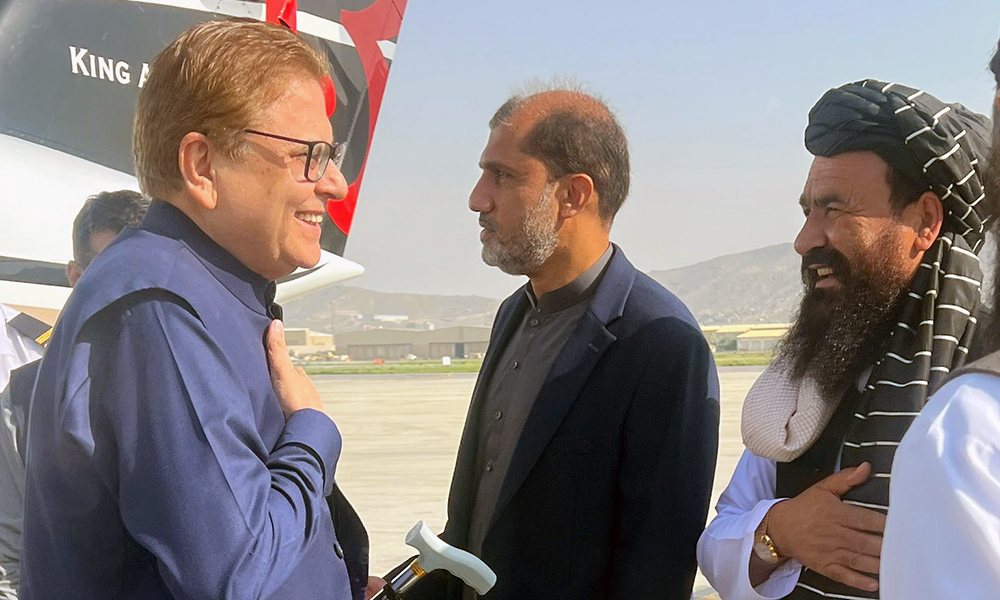
A high-level delegation headed by Mohammad Sadiq, Pakistan’s special representative for Afghanistan affairs, arrived in Kabul on Wednesday for a one-day visit.
The delegation will attend a meeting of the Joint Coordination Committee between Pakistan and Afghanistan, scheduled for Wednesday.
The Islamic Emirate confirmed the arrival of the delegation.
Zabihullah Mujahid, the spokesman of the Islamic Emirate of Afghanistan, told Ariana News that “this is the seventh meeting, sometimes held in Kabul and sometimes in Islamabad.”
According to Mujahid, there will be an exchange of views between the two countries on security, commercial and possibly transit issues.
Abdul Qayyum Zakir, Deputy Minister of Defense of Afghanistan, will lead the Afghan side.
The last meeting of the Pakistan-Afghanistan Joint Coordination Committee was held in January 2024 in Pakistan.
-
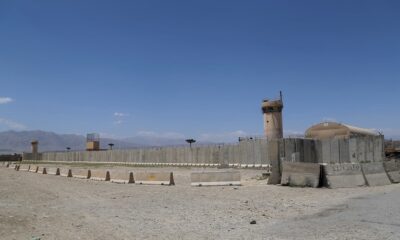
 Latest News4 days ago
Latest News4 days agoNo American military presence in Bagram: US defense official
-
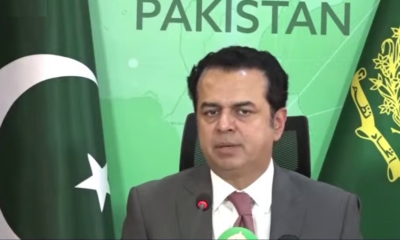
 Latest News5 days ago
Latest News5 days agoNo new deadline will be given for Afghan refugees: Pakistani official
-
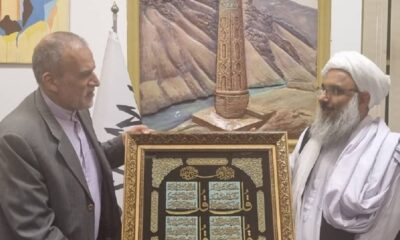
 Latest News5 days ago
Latest News5 days agoIranian economic delegation visits western Afghanistan
-
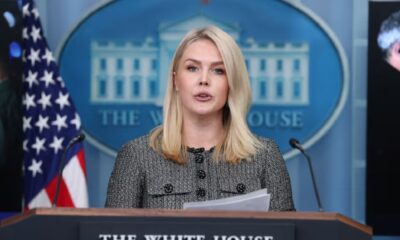
 World4 days ago
World4 days agoWhite House says ‘all hell to pay’ should Iran develop nuclear weapon
-
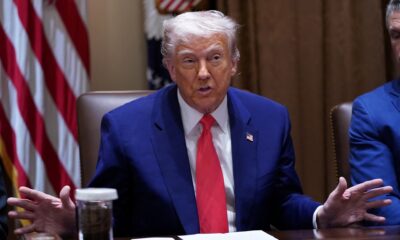
 Latest News4 days ago
Latest News4 days agoTrump ends protected status for thousands of Afghans, Cameroonians
-
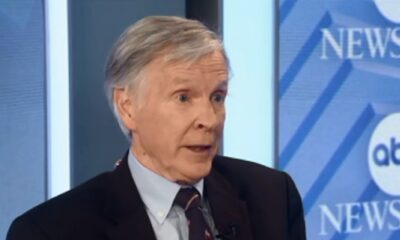
 Latest News4 days ago
Latest News4 days ago‘No one wants to see a nuclear-armed Iran,’ says former US ambassador to Afghanistan
-
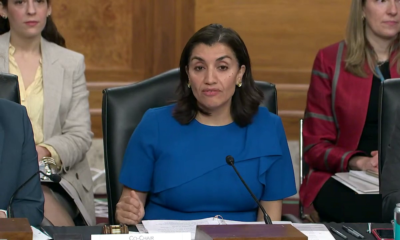
 Latest News4 days ago
Latest News4 days agoUS Senate convenes commission to review early years of Afghanistan war
-
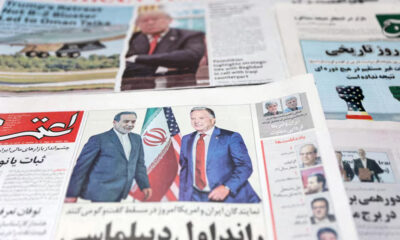
 Regional3 days ago
Regional3 days agoIran, US hold ‘positive’ talks in Oman, agree to resume next week


